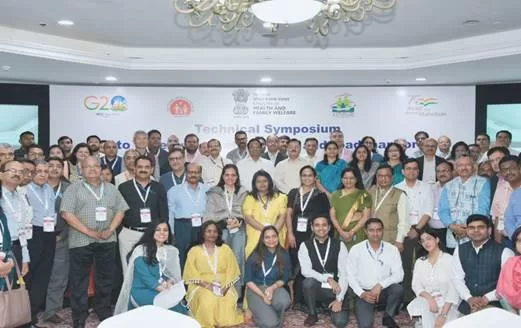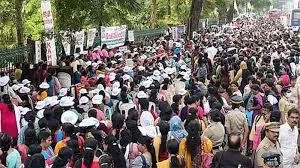
Union Health Secretary, Shri Rajesh Bhushan inaugurated a two-day technical symposium to develop a strategic framework and roadmap for dengue control in India. The purpose of this symposium being organized by the National Center for Vector Borne Diseases Control (NCVBDC), Ministry of Health and Family Welfare (MoHFW) is to bring together identified ministries, states, govt institutions and development partners under a common platform to develop a strategic framework for dengue control and envision a Country roadmap with the objective of maximizing efficiency through a convergence of efforts across multiple dimensions.
Addressing the gathering, Shri Rajesh Bhushan emphasized the importance of timely detection and reporting of dengue cases for effective management and control. He also suggested that dengue to be incorporated under the MoHFW’s Integrated Health Information Platform where 33 diseases are already covered.
Citing his own experience in various ministries of the Union Govt., he highlighted how convergence among different ministries can be achieved to tackle the seasonal outbreaks of dengue in India.
The Union Secretary emphasized inter-sectoral convergence and continuous effort from all stakeholders. He urged all states to initiate a plan of action by the end of the two-day brainstorming.
Ms. Roli Singh, AS & MD (NHM), MoHFW informed that several efforts have been taken towards Dengue control in India. She stated that integrated vector management is being carried out through various ministries and highlighted the importance of effective community participation and intensive IEC campaigns to spread further awareness among people.
She informed that dengue control has also been incorporated under the corporate social responsibility to involve the corporate sector as well. It was also pointed out that the Govt. of India has declared 16 May as National Dengue Day and July as an anti-dengue month.
Shri Rajiv Manjhi, Joint Secretary, MoHFW stated that since there is no drug or treatment available for dengue, it is important to take precautions and ensure vector control and prevention
Dr Tran Minh, Group Head (Emergency Health), WHO India highlighted the importance of promoting the four key interventions of integrated vector control, surveillance & response, clinical diagnosis & treatment and multi-stakeholder initiative for effective control of dengue.
During the two-day symposium, the strategies for prevention and control of Dengue, intersectoral coordination and challenges in Dengue control will be deliberated. A future roadmap will be developed involving the subject experts with a one-platform approach with robust strategy for Dengue control in India.
Participants from ICMR HQs and its Institutes; Medical Colleges- AIIMS (Delhi, Bhubaneshwar, Jodhpur); Armed Forces Medical College (AFMC), Pune; various institutes- NCDC, CHEB, NIHFW; identified States; RoHFWs; WHO HQs, WHO-India, subject experts; CGHS hospitals and identified Sentinel Surveillance Hospitals in Delhi were also present on the occasion.
Background:
The incidence of Dengue is increasing in recent years with repeated outbreaks being reported from many States and newer areas. The increase in dengue cases in the country has been observed to be due to rapid urbanization, population growth, globalization, climate change, socio-economic development and lifestyle changes leading to the introduction of the Aedes vector.
Dengue transmission is mainly due to factors outside the domain of the health sector and therefore needs an effective multisectoral approach requiring coordination between the Ministry of Health and Family Welfare (MoHFW) and other Ministries, Central Government Hospitals, ICMR Institutes, partners, identified States and Municipalities.











